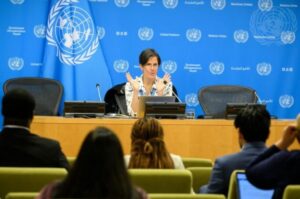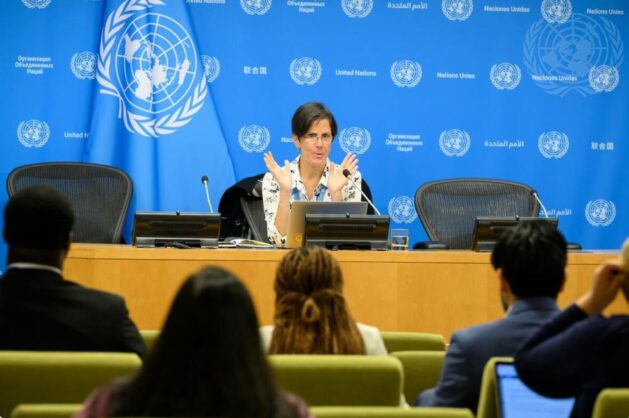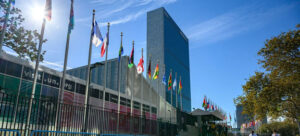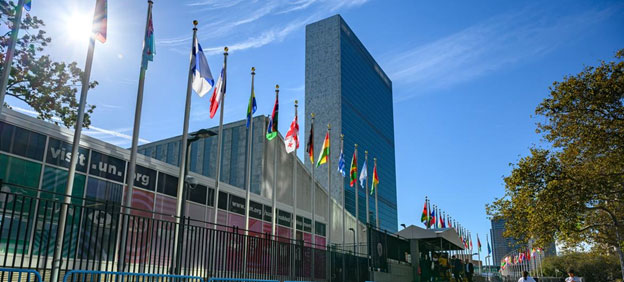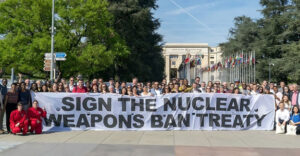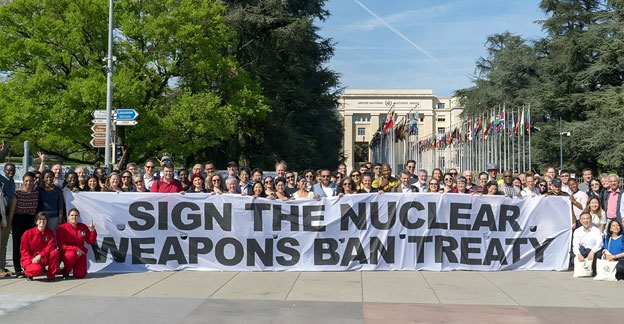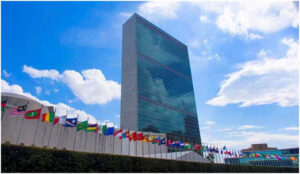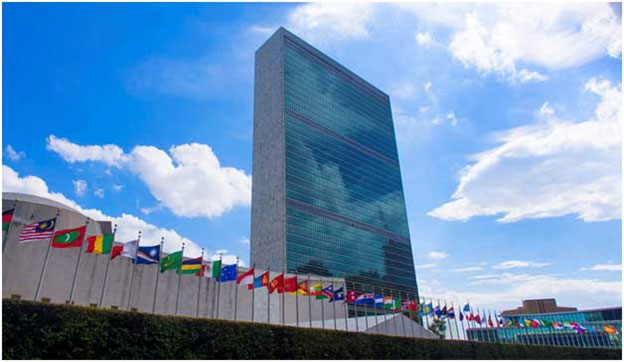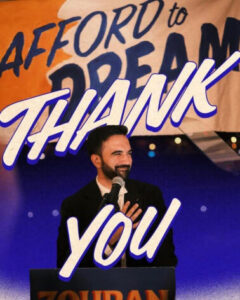
Armed Conflicts, Civil Society, Crime & Justice, Global Governance, Headlines, Human Rights, International Justice, IPS UN: Inside the Glasshouse, Middle East & North Africa, TerraViva United Nations
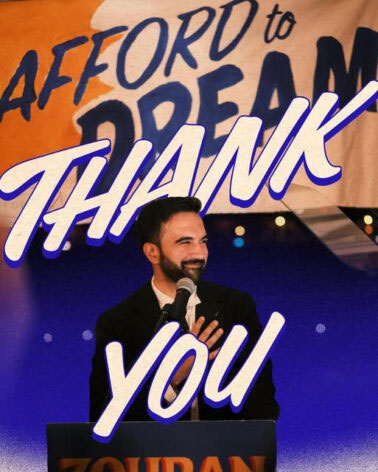
– No leader responsible for mass atrocities enjoys greater impunity on the international stage than Benjamin Netanyahu. This is due to the strange stranglehold of the pro-Israel lobby on the two major political parties in the United States.
Unsurprisingly, the assertion by New York City mayoral candidate and front runner Zohran Mamdani on September 13 that he would order the arrest of Netanyahu if he ever came there, has attracted blowback from within the mainstream political establishments of both the Democratic and Republic parties, as well from extremist right-wing circles.
Legal experts have gone into a tizzy whether a future mayor of New York can arrest the leader of a foreign government. The unjustified blowback apparently in support of Israel’s televised genocide of the Palestinian people flies in the face of facts, basic principles of humanity and the shifting sands of public opinion in the United States.
A high- powered UN Commission of Inquiry led by a judge who investigated the Rwandan genocide of 1994 has recently concluded that Israel has committed genocide – the worst crime under international law – in Gaza.
The International Criminal Court (ICC) has a standing arrest warrant against Netanyahu and his former defence minister for using starvation as a weapon of war and for deliberately killing thousands of Palestinian civilians in Gaza. But bizarrely, it’s not Israel’s leaders but ICC judges and prosecutors who are being targeted through sanctions by the Trump administration.
Nevertheless, Netanyahu’s cruel war on Gaza is rapidly eroding American public support for Israel. According to the Pew Research Center’s latest findings more than half of American adults now possess an unfavourable opinion of Israel. Just 32 percent have confidence in Netanyahu himself.
However, the negative impacts of the damage done to American democracy by Netanyahu and his hardline supporters will linger on. Under the pretext of containing anti-Israeli sentiment, the Trump administration has attacked universities that were the site of sustained pro-Palestinian protests including Columbia and Harvard.
Academic freedom is a cherished American ideal but that hasn’t prevented the administration from threatening colleges and universities with federal funding cuts and placing restrictions on foreign students if they don’t toe the government’s line. Sadly, several pro-Palestinian student protest leaders have been arbitrarily detained in direct repudiation of constitutional protections on the freedom of speech and the right to peaceful protest drawing criticism from UN experts.
Many of us in civil society have been pointing out for some time that the leaders of the two major political parties in the United States are so beholden to the moneyed interests of their donors that they have become out of touch with the needs and aspirations of the American people.
Indeed, Israel’s belligerence in continuing atrocities on the civilian population in the Occupied Palestinian Territories of Gaza and the West Bank has been sharply rebuked by progressive groups like Jewish Voices for Peace and Jews for Racial and Economic Justice who support a new wave of politicians such as Mahmud Mamdani who are willing to stand up for human rights.
A generation of politicians who represent a more forward looking and inclusive vision for the United States and who enjoy widespread support in New York and beyond such as Alexandria Ocasio Cortez have rallied to Mamdani’s side.
Mamdani’s win in the Democratic primaries for the New York mayoral election was powered by a diverse coalition of supporters in America’s most diverse and vibrant city. He continues to be the front runner for the mayoral election slated on November 4.
So far, his focus has been on the issues that matter to most of the people of New York, such as the high cost of living and the ever- widening gap between millionaires and the rest of the country fueled by pro-big business policies and tax cuts.
Funnily, in blatant negation of diplomatic protocol, Netanyahu has jumped into the political fray by dubbing Mamdani’s proposals for New York City’s mayoral elections as ‘nonsense’.
Notably, Netanyahu is planning to come to New York to address the UN General Assembly on 26 September. When he speaks at the UN, it’s usually to disparage the institution, which will be marking 80 years of its founding from the ashes of war and the horrors of the holocaust.
Last year, a large number of delegates walked out of the UN hall when he came on stage. This year, Netanyahu emboldened by Trump’s support will try his best to repudiate the findings of the UN Commission of Inquiry on genocide in Gaza. Whether the delegates will pay attention is arguable.
However, one thing is certain. If Netanyahu attempts to go on to the streets of New York to campaign against Mamdani he will likely be met by mass protests.
Mandeep S. Tiwana is a human rights lawyer and Secretary General of global civil society alliance, CIVICUS. He is presently based in New York.
IPS UN Bureau

